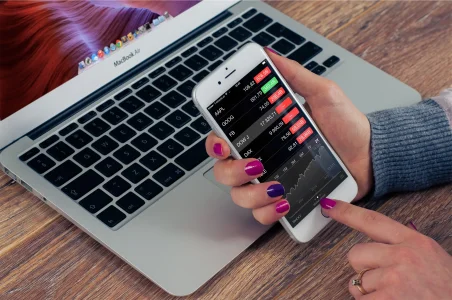
In recent years, the global financial landscape has witnessed a remarkable revolution. Nigeria, Africa's most populous nation, has witnessed one of the most remarkable transformations in forex trading. This shift can be attributed in large part to the increased penetration of mobile technology. Traditionally, forex trading was an exclusive club, accessible only to institutional investors and a limited set of tech-savvy individuals. However, the introduction of mobile trading apps made the forex market widely accessible to a variety of individuals. Let’s take a look at the impact of mobile technology on forex trading accessibility in Nigeria.
The Forex Market Before Mobile Trading
Before the mobile app revolution, the forex market was characterised by complex trading platforms often accessible on computers only. These platforms were daunting to new traders as they required a significant learning curve. This discouraged potential investors, especially those lacking a strong financial background.Moreover, there was limited access to reliable internet connection. The lack of reliable internet connectivity further made it hard for individuals looking to engage in forex trading. Granted, there were other impediments to the access to forex trading. For example, most forex brokers would implement relatively high minimum deposit requirements which were not affordable to many individuals. So how has the introduction of mobile trading apps assisted in solving these accessibility issues? Let’s take a look.
The Impact of Mobile Technology on Forex Trading in Nigeria
The emergence of mobile trading apps shattered the various entry barriers mentioned above and ushered in a new era of inclusivity. Below is how they have done that.- Intuitive Interfaces - Most mobile trading apps have intuitive, user-friendly interfaces. This means that most people, even those without prior experience, can quickly learn how to use them in their trading. The interactive features and educational resources that come with most of these mobile trading apps make it even easier for new traders.
- Internet Access on the Go - Mobile apps provide easier Internet access on the go which gives traders real-time market data wherever they are. Moreover, it gives them access to trading platforms to manage their portfolios at any time. This eliminates the need for a dedicated computer and allows traders to monitor markets and execute trades from anywhere with an internet connection.
- Increased Access to Educational Material - Through mobile technology, traders now have access to forex trading educational material at the palm of their hands. They can learn about forex trading on the go and invest with confidence and knowledge.
These are just the ways in which mobile trading apps have impacted forex trading accessibility in Nigeria. However, they have also had some indirect effects that have resulted from mobile technology penetration. For example, many forex brokers offering mobile apps have reduced minimum deposit requirements to compete with their counterparts. This allows individuals to start trading with smaller amounts, making forex trading more accessible to a wider range of Nigerians.
Benefits of Mobile Forex Trading in Nigeria
The impact of mobile technology on forex trading in Nigeria extends far beyond just accessibility. Here's a closer look at the key benefits:- Convenience and Flexibility - Mobile apps offer unparalleled convenience. Nigerians can now trade anytime, anywhere. Whether commuting to work, during lunch breaks, or even late at night, they can stay updated on market movements, analyze trends, and execute trades with just a few taps on their phones. This means that even traders with busy schedules can participate in forex trading.
- Increased Market Liquidity - The increased participation in forex trading fueled by mobile apps has deepened the forex market. A larger pool of traders translates to increased liquidity, which can potentially lead to greater price offers and more efficient markets.
- Financial Inclusion - Mobile forex trading allows individuals traditionally excluded from financial systems to participate in the global financial markets. This fosters financial inclusion and offers Nigerians a potential avenue for wealth creation and economic empowerment.
Challenges and Considerations
While mobile technology has revolutionized forex trading accessibility in Nigeria, there are still challenges to consider. These include:- Risk of Fraud - The rise of mobile apps has also opened doors for fraudulent activities. It's crucial for potential traders to choose reputable and licensed forex brokers with robust security measures in place.
- Limited Knowledge and Experience - The ease of access through mobile apps can lead some to enter the market without adequate knowledge or well-defined trading strategies. This can increase the risk of financial losses.
- Potential for Addiction - The constant connectivity and accessibility offered by mobile apps can lead to impulsive trading decisions and even addictive behaviours. Implementing responsible trading practices and setting clear boundaries are essential for successful forex trading.
- Unreliable Internet Connectivity - While internet access has improved in Nigeria, there are still regions with unreliable connections. This can be problematic for forex trading. Even brief outages can lead to missed trading opportunities or even losses.



![[FULL LIST] Tinubu Appoints IBB's Son, Others to Lead Key Agencies](/data/attachments/219/219051-c45e0723af5235b4e99b88eb1fa579fd.jpg?hash=su4VHIBpS9)
